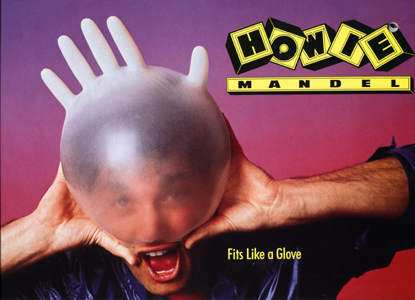By Jeremy:
I’ve written on here before about my personal experiences with derealization, a particularly unpleasant anxiety disorder that is more common than you would think, but not often talked about. I realized though that while it is valuable to share my own story, much of what exists on the internet is very similar: peoples’ personal struggles with derealization. You can read my original post here: http://wildfree.me/2012/10/30/overcoming-anxiety
What I would like to do with this post is to explain exactly what derealization is in a way that will be beneficial both for people who have experienced it as well as for people who have not, but might have a friend or loved one who is struggling with it.
First off, you might notice I’m only using the term “derealization.” The disorder is often divided into derealization and depersonalization, but the difference between the two is not very important. I think they are both aspects of the same problem, and I have experienced both of them. I will use derealization here to refer to both. You might lean more toward one or the other, but ultimately they are both just aspects of anxiety.
The most important thing to understand about derealization is that it is not a stand alone disorder. It is a symptom of anxiety just like a panic attack. The only difference is that unlike a panic attack, people can experience continuous derealization for long periods. This makes it seem like something more scary than it is, but in truth, it is no different from any other symptom of anxiety.
Derealization can be characterized generally as a feeling of being detached from reality. It makes you feel a little like Howie Mandel in the picture above: it seems as if there is a filter or screen between you and the world around you. The picture I chose is a little silly, but I did this on purpose. Many people describe derealization in very extreme terms, as if there were an uncrossable boundary between their minds and reality. I don’t want to use that kind of language though because it actually perpetuates the problem. Anxiety in general, and derealization in particular, tend to be self-fulfilling prophecies. The more you think you are detached from the world, the more detached you will be. Learning to have a sense of humor about your anxiety will be more helpful than you can imagine.
For those of you who have not experienced derealization before, here are a list of common symptoms:
– Feeling emotionally detached or unable to find stimulation from people or things.
– Feeling disconnected from your own body, as if it were moving on its own.
– Feeling as if you were watching yourself talk and act from outside your body.
– Loss of depth perception or change in visual perception (think of the way you feel when you first wake up from a vivid dream, and are unsure if your bedroom is real or part of the dream).
– Change in auditory perception, i.e. things sounding “distant.”
– Feeling trapped in your own head.
As you can imagine, these symptoms are very scary. Usually they are brought on by some traumatic event, or the buildup of suppressed anxious feelings. Nobody expects to become “derealized,” and the experience of all of a sudden having your world turned upside down can make the process of recovering seem daunting. But it’s not! It will take hard work, but the more you come to understand the nature of your derealization the less scary it will be, until eventually you realize it’s nothing but a blown-up rubber glove on your head. See? I know you laughed at that. Less scary already!
So what is it like to live day to day with derealization? Many people let it take over their lives, thinking obsessively about it. This was certainly true for me. One of the most common questions I’ve found online about derealization is, “when will it go away?” or “will it ever go away?” These questions make it seem like an insurmountable problem. Remember: the more you ask those questions, the more true they will become. Imagine derealization as being like one of these finger trap toys:
The harder you pull, the more difficult it is to get your finger out. Well, derealization is the same way: the more you worry about it, the harder it is to get out. But, if you relax your finger, it will slip out easily on its own.
People with derealization also often feel as if they were right on the verge of “going crazy” or becoming insane. Can you blame us? If you felt detached from the world, you might be afraid that you were becoming schizophrenic, or worse. Here’s the thing though: it never progresses beyond that feeling of being on the verge of losing touch. No one has ever lost their mind from derealization, because you ARE still in touch with reality. Remind yourself that even if, say, a ham sandwich looks completely unreal, when you pick it up, what your hands feel is confirmed by what your eyes see and your tongue tastes. The only thing that is detached from reality is the way you feel. Go ahead, go around and touch things, smell them, taste them! Derealization does NOT cause hallucinations. It just makes you feel weird. Really weird, yes, it’s true. But not insane!
So what can you do about your derealization?
First off, stop looking for a “cure.” It’s not like a lightbulb, you can’t just turn it off. In fact, the more that you expect it to just go away magically, the further you will take yourself into it. But don’t let that get you down. I know from personal experience that it can be crushing to realize that it’s not just going to “go away.” The way out of derealization is not a direct route, and it’s not a magic bullet. Remember, derealization is just another form of anxiety, so rather than trying to treat your derealization, it is much more beneficial to treat the underlying anxiety. You might not see the connection between the two right now, but you will be surprised to see more and more how they are connected as you recover.
The best approach is a combination of different things that you can integrate into every aspect of your daily life:
– See a therapist. I can’t stress how important this is (it’s why I put it first!). Especially a therapist who specializes in Cognitive Behavioral Therapy (CBT). Unlike taking medication, which can often simply blanket symptoms of anxiety which only come back more intensely later on, CBT uses thought exercises that you can do every day that get to the root of your anxious behaviors. It helps to slowly change the way you respond to situations or feelings that make you feel anxious.
– In addition to talking to a therapist about your derealization, talk to anyone you can about it. Because it is not a widely known disorder, there is something of a stigma attached to it. You kind of sound like you’re crazy, or schizophrenic, but you’re not. You’re just anxious! The more you keep your thoughts and feelings about derealization in your head, the more you will feel trapped in your head. Let go of those feelings and you will be surprised at how much more free you feel.
– If you don’t feel comfortable talking about it right away, start off by writing or journaling about it. Even just putting your anxious thoughts on paper can help. Why do you think I’m writing this? In part it’s to help people, but I’m also doing it because it’s good for my own anxiety.
– Do a daily meditative exercise. This one has been incredibly helpful for me. If you feel like your thoughts are out of control, or you are detached from your body, the best way to reconnect is simply to sit with yourself, and just let yourself be. There’s no right or wrong way to do it, and you can find your own approach. The more in touch you are with yourself, the less afraid you will be.
– Be social and physically active. The more you make yourself engage with the world, the more you will feel it. Even if it’s painful or difficult, it’s very important. The longer you stay in your own head, afraid of the world, the deeper into your own head you will go.
– Make this the last thing you ever read about derealization on the internet. This is really, really important. Clearly you got here because you were searching for information about derealization. One of the main reasons I decided to write a more detailed post about this is because of how many visits my first post got from Google searches for derealization. Unfortunately, most of the people you will find online don’t know very much about derealization, and are struggling very intensely with it. These people aren’t a good community for recovery. There are lots of message boards out there, and they are filled with anxious people making each other more anxious. The internet is also not a good way to connect with people if you are feeling detached from reality.
What it boils down to is this: derealization can be scary, but at the end of the day it’s just another form of anxiety, something which will affect a huge number of people at some point or other in their lives. It won’t be easy or simple to overcome, but it is possible, and you can and will do it!


Thanks so much for the kind words! It means so much to me to see that my experience and reflection are helping others. You are actually the first person to respond to this post, so thanks!
Your experience sounds almost exactly like mine. It took me about two years before I really decided to grab my anxiety by the horns and be done with it once and for all. You can definitely do it! Just be vigilant about it, find ways to get your mind off it, and soon you won’t even think about it anymore.
It is ALWAYS possible to return to normal from anxiety, whether you’ve had it for two years or twenty. Although anxious feelings are very real, anxiety is not. There is no such thing as “anxiety,” it’s not like the flu or an illness you can catch. All it is is your feelings, and they are in your control.
Feel free to email me or keep me posted on here about your progress (and this goes for anyone else reading this, please, I would love to hear from you!) jeremy.konick@gmail.com.
Thank you so much. This post was incredibly insightful and positive, something, as you’ve mentioned, is impossible to find on the internet. I’m sure you have received many emails about recoveries as well as questions from those who suffer, because as we both know, the derealization is very REAL to everyone who experiences it. To them, it is the center of their universe. While you may advocate against this frame of mind (as I also do), others may struggle to understand that. I have been dealing with my own derealization for almost two years now. The only thing I have done for it is the occasional therapy session as well as fairly consistent yoga. I am ready to take the bull by the horns at this point, and take my life back. From one sufferer to the next, I was curious to know if you believe that someone who has had the problem for two years with some change, but not full restoration, can return to normal? Thank you so much. – Mel